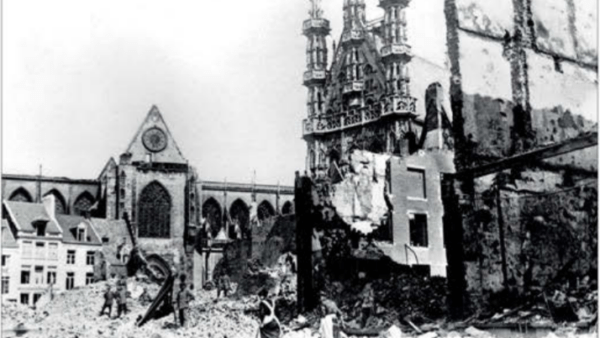In 1914, Germany invaded neutral Belgium as part of its strategy to attack France in what would become World War I. This fateful decision ignited a global conflict by drawing other European powers into the fray.
Germany’s Battle Plan
Germany had long planned to attack rival France in the event of war. Their strategy, the Schlieffen Plan, called for a rapid invasion through neutral Belgium into northern France to quickly gain victory before Russia could mobilize.
Why Belgium?
Germany chose Belgium as the pathway for its assault on France for several strategic reasons:
- Belgium’s borders provided the most direct and convenient route for the German army to surge into France and try to capture Paris.
- Belgium was a small country unlikely to mount strong resistance against Germany’s much larger and more powerful army. Germany did not foresee a protracted fight.
- Occupying northern France would allow Germany to capture Channel ports and directly threaten Britain.
Anticipated British Response
Germany knew invading Belgium would likely incur retribution from Great Britain, which had historically protected and defended Belgium’s neutrality. But Germany gambled that Britain would not be able to mobilize and act in time to thwart its plans.
Belgium Appeals for Help
On August 3, 1914, Germany declared war on France and invaded Belgium via air and ground forces. Belgium immediately appealed to Britain and other nations for aid against this violation of its neutrality.
Britain’s Treaty with Belgium
Britain was not strictly obligated by any current treaty to come to Belgium’s defense. However, the 1839 Treaty of London between Britain, France, Prussia, Austria and Russia had committed Britain to safeguarding Belgium’s perpetual neutrality.
Britain Enters the War
Though the 1839 treaty was outdated, Britain still felt morally and politically compelled to uphold Belgium’s neutrality in the interest of stability in Europe. As such, on August 4, Britain declared war on Germany in response to the events in Belgium, thereby entering World War I.
Wider Fallout from Invading Belgium
Britain’s entry into the war in defense of Belgium had rapid ripple effects around the globe:
- As Britain’s allies, countries like France, Russia, Australia and New Zealand also quickly joined the war effort against Germany and its partners.
- Witnessing Germany’s aggression in Belgium convinced many in the US that Germany posed a serious threat to stability in Europe and beyond. This helped shift American opinion and ultimately contributed to the US entering the war in 1917.
So Germany’s intentional disregard for Belgium’s neutrality set off a chain reaction that rapidly escalated the scale and intensity of the conflict by engulfing much of the world. The decision dramatically altered the course of the war.
Belgium Pays a Tragic Price
Although small and determinedly neutral at the outset, Belgium ended up suffering incredible loss and devastation due to the German invasion. Over the 4 years of World War I:
- Around 25,000 Belgian civilians died as a result of military operations, famine, disease and other war-related causes.
- Over 75% of Belgium’s troops were casualties of the war – killed, missing, wounded or taken prisoner.
- Much of western Belgium was left in ruins by the end of the war after enduring years of heavy fighting and bombardment. Damage totaled nearly $6 billion.
The German invasion of Belgium in 1914 will be remembered as one of the pivotal events precipitating the deadliest war the world had ever seen up to that point in history. Belgium’s decision to resist drew in Britain and expanded the war, but came at a grave cost to Belgium itself.
Originally posted 2023-08-02 13:55:44.





There are 4 comments
Comments are closed.